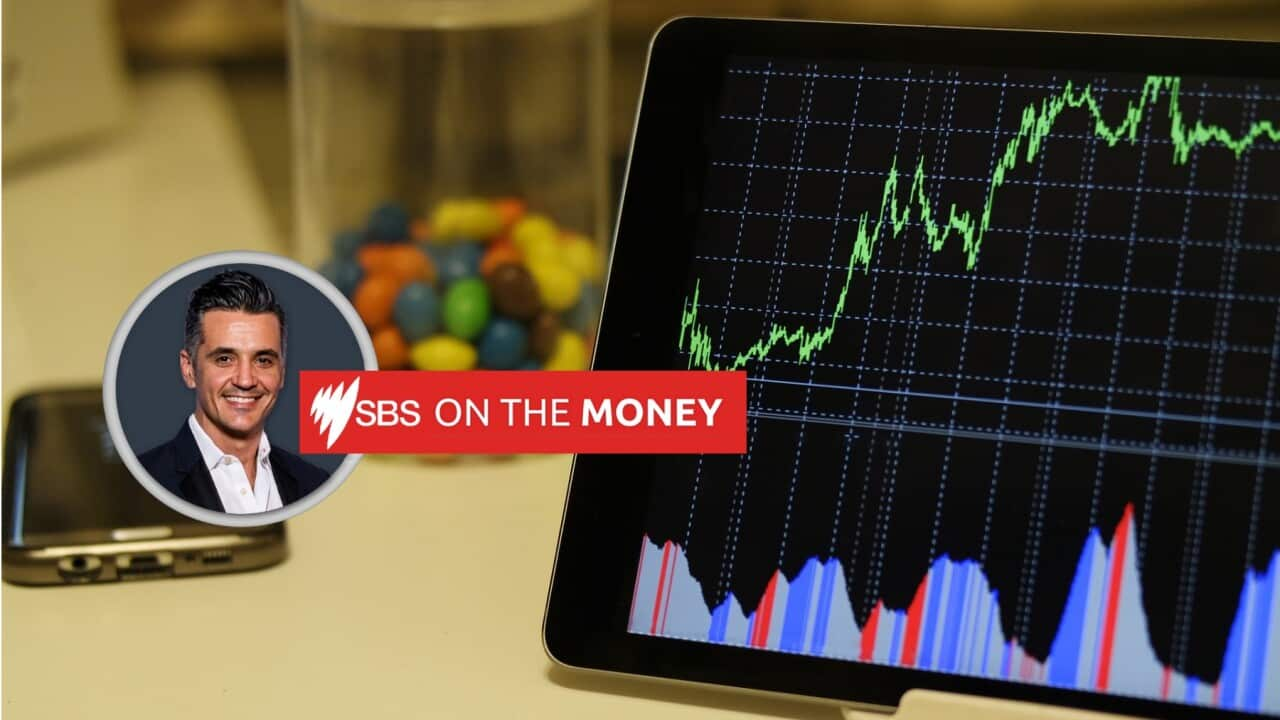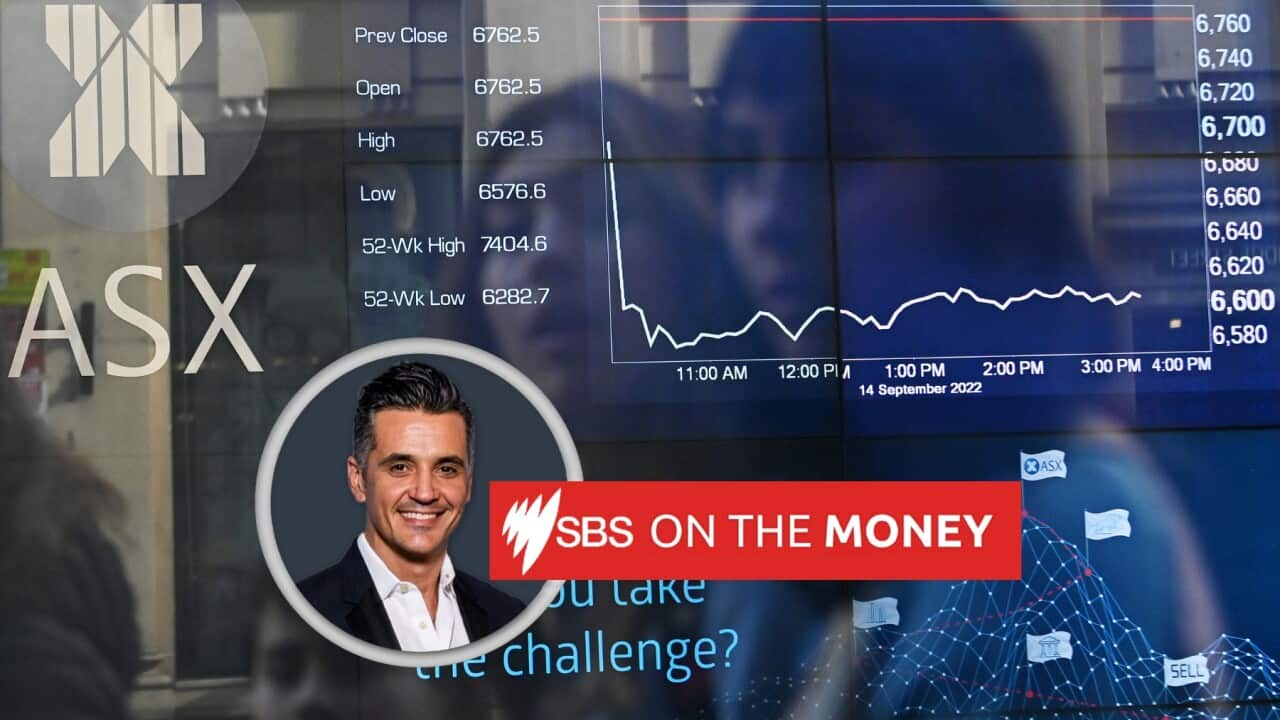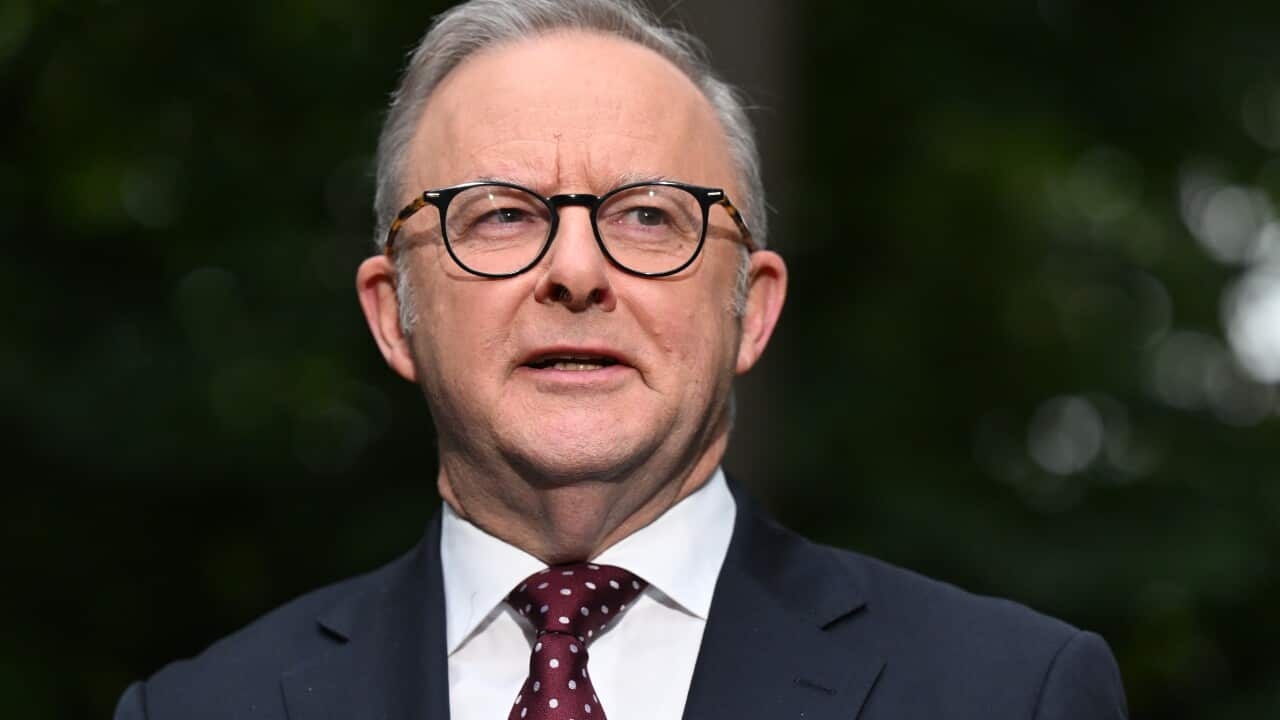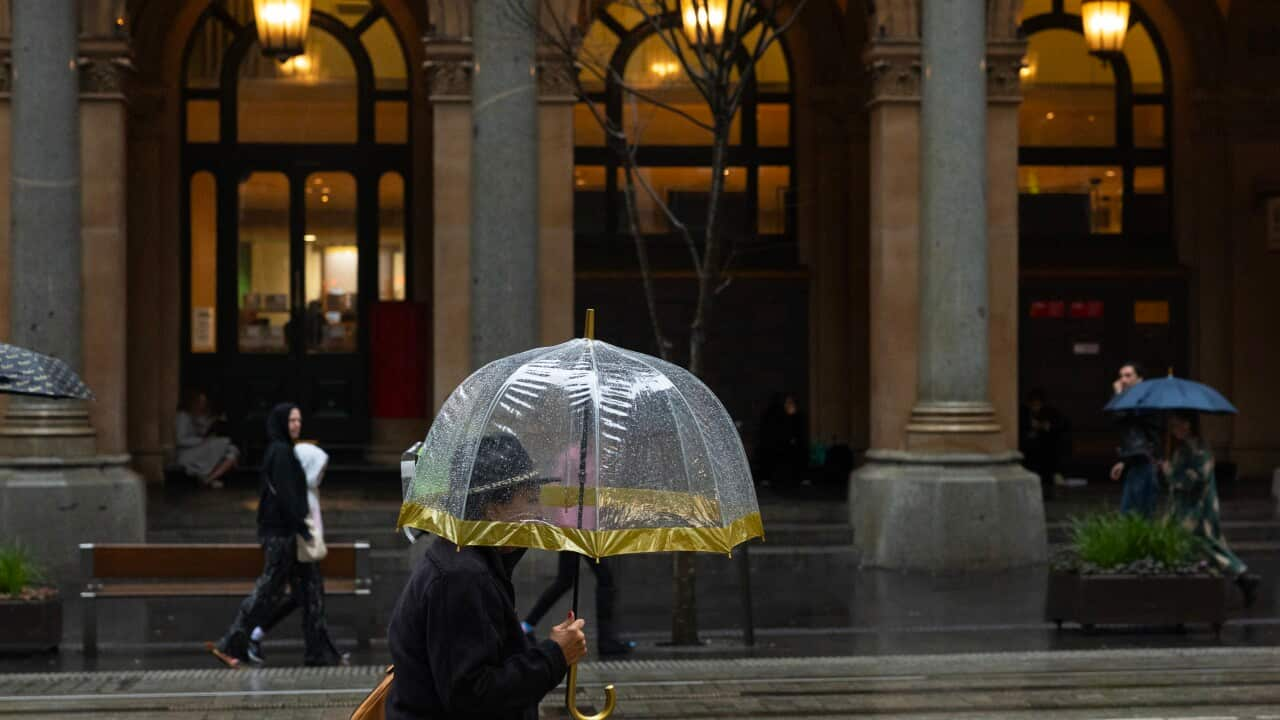Listen to Australian and world news, and follow trending topics with SBS News Podcasts.
Why the RBA didn't cut interest rates in July

Source: SBS News
SBS Finance Editor Ricardo Gonçalves finds out why the RBA didn't cut interest rates in July with Katrina Ell from Moody's Analytics, and how the market reacted with Stuart Roberts from Stocks Down Under.
Speaker 1
You're listening to SBS on the Money with Ricardo Gonçalves.
Ricardo Gonçalves
Hi everyone, it is Tuesday, the 8th of July. This is the SBS on the Money podcast where we are giving you consumer news and finance and markets news you can use without the fluff. The Australian share market on hold today didn't move, the S&P/ASX 200 up just 0.02%, so that's basically steady 8590.
Ricardo Gonçalves
Tell you what else was steady today, interest rates. Reserve Bank surprising the market and many economists by leaving the official cash rate at 3.85%. With all the details I spoke with Katrina Ell, head of Asia Pacific Economics at Moody's Analytics.
Ricardo Gonçalves
Katrina, to what extent is the Reserve Bank's decision to hold interest rates a surprise because it wasn't unanimous? We know for the first time it released the way the board voted, 6 in favour of the decision, 3 against, and what does it say about the economy?
Katrina Ell
So we saw the financial market response really did exemplify that by the fact that this was a surprise decision. We saw the Aussie jump by 0.8% against the greenback following the announcement, and it really does go to show the RBA made it very clear that it's just not quite comfortable with where underlying inflation is tracking through the June quarter. It is coming in a little bit hotter than what they expect it to.
Katrina Ell
And it really does threaten their view that inflation will sustainably return to that 2 to 3% target band, and because they've already delivered a cumulative 50 basis points worth of reductions, they just don't see the need at this point to deliver that additional 25 basis point cut right now.
Ricardo Gonçalves
Those unattributed votes, do they mean anything to you?
Katrina Ell
They do. It does really show that...
Katrina Ell
Just as you say, it wasn't a unanimous decision and so it does show that there is some underlying cautiousness when it comes to what is the right move right now, because on the one hand we have a highly uncertain global environment and we have a sluggish domestic economy that is showing signs of picking up, so it is not a clear path forward on what's the best approach at this point.
Ricardo Gonçalves
So the RBA has basically said that it can wait for a little more time to get more information, that confirmation of inflation is indeed on track to stay within its target band. What do you think gave it the confidence to say that it has the time?
Katrina Ell
That's a great question and I think it comes back to the labour market. The labour market is resilient and it is incredibly strong, particularly against the backdrop of the amount of monetary tightening that was previously delivered. So we've got an unemployment rate sitting at 4.1%, and we're only expecting it to creep up to about 4.4% by the end of the year, so that's not too dissimilar to where it is right now.
Katrina Ell
But I think the RBA will continue to pay really close attention to how the labour market evolves, and if it does stay within our forecast of rising to just 4.4%, then I think that would kind of continue to keep the RBA confident that the domestic economy is evolving as it should be.
Ricardo Gonçalves
What about US trade policy, how has that influenced decision and can you in essence blame Donald Trump because didn't the RBA previously say that tariffs were likely to be deflationary in Australia?
Katrina Ell
So I think what we can garner as the influence of US trade policy on monetary policy decision making is that it's injecting a whole lot more uncertainty into how the global economy is going to evolve, particularly over the next couple of months. And while the base case is certainly that tariffs globally are going to be deflationary because of the negative impact on global demand, at this point we just don't know.
Katrina Ell
Exactly how it's going to play out, and there's a whole lot of uncertainty even in Australia's case about what kind of tariff rate is going to be introduced for a sustained period of time, and so I think the RBA is just playing it really cautiously at this point. But one thing to keep in mind is that in Australia's case, because we do have a large domestically driven economy with households as the key ingredient, that's what the RBA is paying particularly close attention to at this point.
Ricardo Gonçalves
And finally, does it change things in terms of expectations for future rate cuts? What are you expecting, why and when?
Katrina Ell
That's the million dollar question. So our assumption at this point remains that we will see a cumulative 50 basis points worth of reductions in the second half of this year, but to be frank, it's highly uncertain, and I think the RBA certainly hasn't got that path set in stone at this point.
Katrina Ell
It will really be guided by what happens with the labour market data, what happens with inflation, and of course how the global economy digests the uncertainty around US tariff policy.
Ricardo Gonçalves
That is Katrina Ell from Moody's Analytics.
Ricardo Gonçalves
Now, market day on the SBS on the Money podcast. Though the Australian share market held steady as well, the S&P/ASX 200 up just 0.02% to 8590. 7 of the 11 sectors were lower on the index led down by the...
Ricardo Gonçalves
Consumer Staples index down by 1.66%. The sector there. Utilities, property also weaker. The sectors that did well: information technology and consumer discretionary. For more, I spoke with Stuart Roberts from Stocks Down Under. Stuart, how do the markets react, both equities and currencies, to this decision to hold interest rates by the Reserve Bank because it did come as a bit of a surprise to the...
Stuart Roberts
Market.
Stuart Roberts
It was mixed reaction. The gold stocks all went up today, as did, believe it or not, Bluescope Steel, which is facing tariffs at the moment. So I think anything that's consumer oriented was going down, but if it's export focused, it's on the way up.
Ricardo Gonçalves
So in terms of rate cut expectations then, I think yesterday when I spoke to my markets analyst, they said that there was a 75% chance the market was giving for a rate cut today, we didn't get it. What's the market now...
Stuart Roberts
Expecting?
Stuart Roberts
Well, I think we'll still get a couple of rate cuts. You see that inflation is coming down, but the Reserve Bank is acting very cautiously. Remember, they got caught off guard by this takeoff in inflation a couple of years ago, so they want to play it safe. So possibly we've all talked ourselves into interest rate cuts as soon as possible. That might not happen until we're certain that we're in the band, and then when we are, the bank can cut more aggressively.
Ricardo Gonçalves
We've got the interest rates decision that happened today. The other thing that investors are looking at is international effects, right? Donald Trump's tariff policies. They're constantly changing. Right now he's signalled that he's open to more negotiations after unveiling his first wave of letters threatening higher tariffs. How are investors dealing with that?
Stuart Roberts
I think we've walked into what I call crisis fatigue. You switch on the news and there's something bad going on in the world, of which Trump and his tariffs have won. The world hasn't come to an end straight away, and as a consequence, people are just shrugging it off and moving on. One gets the sense that a lot of what Trump says is bluster before the final numbers come through.
Ricardo Gonçalves
So given all the environment, what are you telling your clients right now and where do you see the opportunities for investors?
Stuart Roberts
Oh, this is a golden time to be in the markets. Obviously, a lot of the big caps have gone to quite high valuations. But this is the year of small caps. We've had several bad years for small caps. Finally, when the bank begins to lower interest rates more aggressively, you're gonna see a comeback in a lot of small caps which have been ignored for the last few years.
Ricardo Gonçalves
That's Stuart Roberts there from Stocks Down Under. That wraps up this podcast for this Tuesday. Don't forget to give it a like, a review...
Ricardo Gonçalves
On Spotify and Apple Podcasts if you do enjoy it and to click that subscribe button.
Speaker 1
This SBS on the Money podcast is provided for informational purposes only. The content on this podcast should not be understood as constituting advice or a recommendation. It is not personal advice and does not consider your personal circumstances or objectives. You should contact a licensed professional before making any financial decision.
Latest podcast episodes
Recommended for you

superannuation funds











